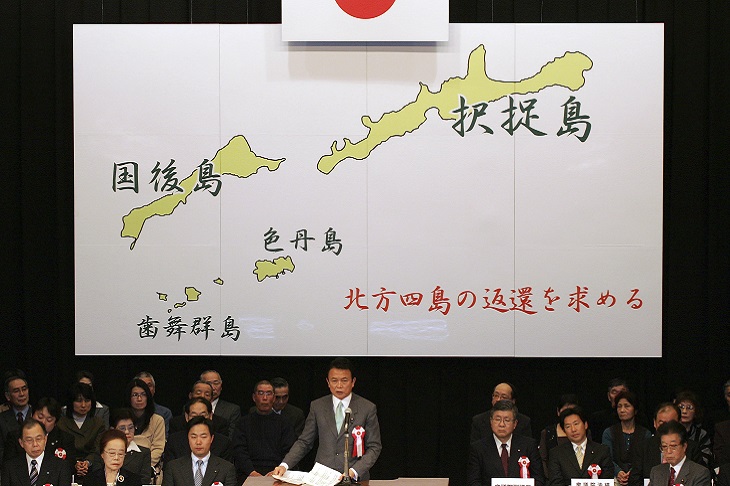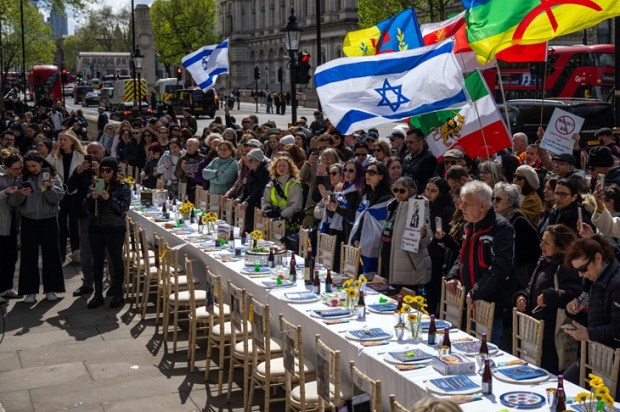While the West inflicts sanctions on Russia, Japan has decided to call it quits on a high-profile peace negotiation regarding the contested Kuril Islands.
Japan’s Prime Minister, Fumio Kishida, did not hide his motivation – pinning the decision directly on Russia’s invasion of Ukraine. By declaring the islands as an ‘integral part of Japan’, his words mimicked those of his Russian counterpart who has repeatedly claimed the exact same thing.
The Kuril Islands were always going to be drawn into the next major conflict. As a string of jewels sitting at the top of the Japanese peninsula, they have a complex ethnic history with the original inhabitants being neither Russian nor Japanese, but a people on the edge of extinction called the Ainu.
The Ainu have been incorporated into Japan (and to a lesser extent, Russia) with less than 1,000 isolated Ainu people living traditional lives. While there are more who identify as Ainu in the broader community, their existence is dwindling.
When the Japanese parliament recognised the Ainu as an ethnic Japanese minority – breaking with the strictly held monoculture narrative of Japan – it aided in consolidating the Kuril Islands as historically Japanese. In contrast, the Ainu in the North living under Russian control have been denied access to indigenous standing and so do not have hunting and fishing rights.
Japan and the Russian Federation remain engaged in a territorial dispute over four islands, all of which were annexed from Japan by the former Soviet Union at the close of the second world war when the victors were running around re-drawing map lines.
The conquest erased the terms of the 1875 Treaty of Saint Petersburg, with Japan left to the mercy of the war’s victorious parties. Japan lost the right to the Kuril Islands under the San Francisco Peace Treaty, but with Russia not exactly classed as a ‘friend’ despite being on the winning side of the war, their regime was not recognised by the treaty. This left a vacuum of power surrounding the islands that was never properly sorted out in the inter-war period. Claims over the islands have been going back and forward between the two ever since, with the power dynamic shifting dramatically as Japan returned to global favour.
Unpicking the complex history of the islands does not change the present geopolitical environment.
Japan’s motivations for drawing a red line around the Kuril Islands probably has more to do with concerns over a coming Pacific conflict which has been threatened by their neighbour, China, for several years.
Russia and China signed a non-interference pact at the Shanghai Cooperation Organisation. It is not a passive agreement, but an active one that encourages its signatories to use their United Nations veto powers to prevent the rest of the world taking action against any member’s hostile behaviour. Essentially, the SCO de-fangs the tiny barking UN dog.
The shadowy power of the SCO has already been observed in relation to members of the Arab League (interested dialogue parties) quoting the pact when asked by humanitarian organisations why they refuse to interfere in China’s treatment of Muslim populations. Most geopolitical observers assumed that the SCO’s first serious use would be seen during Xi Jinping’s long-predicted invasion of Taiwan. Instead, Russia took a shot at Ukraine first. China, naturally, used its veto vote to stop the UN from acting.
At the end of the day, the power of international bureaucracies is neither here nor there. Countries will do what they want (and what they are capable of) without regard for auditoriums full of futile scorn. What these organisations provide is an outline for the geopolitical relationships between empires which helps us make an educated guess about how conflicts might unfold. They are a Chinese whisper whose accuracy depends on how close countries are to the alliance.
The SCO is not purely a diplomatic nightmare, it is an explicit military arrangement. Japan quite rightly views China and Russia as a joint problem, like some lumbering dragon held together with paper treaties and delusions of global succession. Russian missiles in the increasingly militarised Kuril Islands may as well have ‘made in China’ printed on the side.
Of course, Putin was happy to offer a peace treaty in 2018, so long as he got to keep possession of the islands. Discussions came to a frosty head in 2019 in Moscow when the Russian Foreign Minister coyly asked if Japan had accepted the results of the second world war. Ironic, considering Russia’s annexation of unwilling neighbours to rebuild the USSR suggests Putin has failed to accept the collapse of the communist empire last century.
Japan’s hostility toward Russia is not purely a rejection of Vladimir Putin’s behaviour in Ukraine, it is a preemptive step in a looming conflict with China.
From Japan’s perspective, it has a decades-old bone to pick regarding its territories. Russia – a geopolitical ally of its greatest threat – is arming a disputed region and making incursions into its territorial waters and airspace. Japan also accepts that it is likely that China will eventually slip a hand under the table and make an unwanted move on Taiwan, forcing Japan into its first serious military conflict since the second world war.
There are lots of rules regarding what Japan can and can’t do when it comes to war, but their handcuffs have significantly loosened – perhaps even been unlocked – for good behaviour. The apocalyptic threats issued by Beijing against Japanese intervention in Taiwan demonstrate that China has little faith that bits of paper will hold Japan back from defending their interests in the Pacific.
Will Japan test Russia’s patience and attempt a recovery mission in the sparsely populated Kuril Islands while Russia is distracted with Ukraine? Or will they leave it sit there as Damocles’ sword, creaking in the wind?
Russia complained about, ‘[Japan’s] openly unfriendly positions and attempts to damage the interests of our country.’
Fumio Kishida was having none of it, with the Japanese Prime Minister replying, ‘This entire situation has been created by Russia’s invasion of Ukraine, and Russia’s response to push this onto Japan-Russia relations is entirely unfair and completely unacceptable.’
Got something to add? Join the discussion and comment below.
Get 10 issues for just $10
Subscribe to The Spectator Australia today for the next 10 magazine issues, plus full online access, for just $10.

























Comments
Don't miss out
Join the conversation with other Spectator Australia readers. Subscribe to leave a comment.
SUBSCRIBEAlready a subscriber? Log in